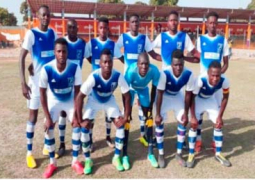Citizens of West African countries benefitting from a US$108-million regional emergency energy programme will experience “significant improvements” in their energy generation and supply from next year, the President of the ECOWAS Commission, Kadre Desire Ouedraogo, has said.
Speaking in Abidjan on Monday 16th December 2013, during the signing ceremony for the grants to three ECOWAS beneficiary countries, the president said the persisting energy deficit which became more acute in the last ten years, has impacted negatively on the region’s competitiveness, productivity and economic growth.
The Gambia, Mali and Sierra Leone are the latest beneficiaries of the regional programme based on requests by the states. This is to enable them rehabilitate some of their generation infrastructure and network, build capacity, install pre-payment metres and develop an improved mechanism for coordination and monitoring of their energy utilities.
Guinea Bissau and Guinea were the first beneficiaries under the programme, which was launched in 2010.
The latest intervention in the energy sector through this programme, the president said, is in response to the directives by heads of state and government of member states in their determination to improve energy supply as a complementary tool for spurring the region’s economic development.
He explained that the programme would address the severe energy shortages in these countries, which have had to rely on load-shedding in order to meet the minimum energy needs of their populations with multi-dimensional implications mostly in the health, social and economic sectors resulting in public disaffection.
Describing the programme as aptly capturing the “spirit of solidarity” behind the ECOWAS integration project, the president said it is being financed by the community “with the deep conviction that its implementation will alleviate the energy supply of the three countries” by replacing epileptic power supply with a more reliable supply.”
Earlier, Cote d’Ivoire’s Minister of Economic infrastructure, Patrick Achi, applauded the community spirit behind the programme, which he said would impact positively on the economy of the states and the development of the region.
The Gambia’s Energy Minister, Tenengba Jaiteh, who responded on behalf of the beneficiary states praised regional leaders for their “strong support” to member states in dire need of assistance.
She said the “funds to be disbursed are urgently required to help stabilise the precarious situations, which we have been grappling with in our various energy sectors.”
Mali would get U$54.32 million, followed by The Gambia with US$31.9 million, while Sierra Leone would receive US$21.8 million of the grants to be disbursed in two tranches over 12 months.
Read Other Articles In Article (Archive)
NCCE wraps up nationwide school sensitization on basic human rights
Jul 3, 2013, 11:11 AM


